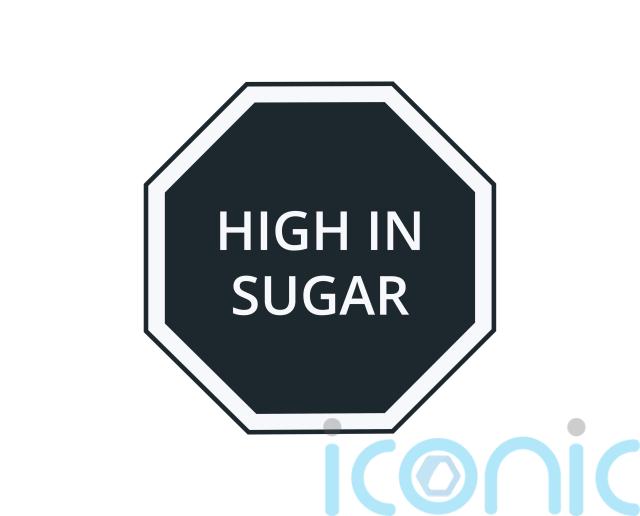
More than 100,000 obesity deaths could be prevented over 20 years if firms were forced to put nutrition warning labels on the front of food packs, experts have said.
Researchers from the University of Liverpool found that warning labels for foods high in fat, salt or sugar – as implemented in several other countries – could save lives across England and cut the number of overweight people.
In 2016, Chile was the first country to bring in a mandatory nutritional warning label law – with food and drink high in fat, salt or sugar needing to display a black octagonal warning on the front of packs.
Other countries, including Mexico and Canada, have introduced similar changes.
In the UK, while it is mandatory for nutrition information to be displayed on the back of all food packaging, putting any details on the front, such as the traffic light system, is voluntary.
In the new study, published in the Lancet Regional Health – Europe, experts used modelling to see what differences mandatory warning labels could make.
Looking at the 20-year period from 2024 to 2043, mandatory implementation of traffic light labelling was estimated to reduce obesity prevalence by 2.34 percentage points.
It could also prevent or postpone 57,000 obesity-related deaths.

But mandatory implementation of nutrient warning labelling – as seen in other countries – would have a bigger effect, with a 4.44 percentage point reduction in obesity prevalence and 110,000 fewer obesity-related
deaths.
The authors concluded that nutrient warning labels should now be considered by the Government.
Dr Rebecca Evans, corresponding author of the study, said: “Our findings suggest that mandatory nutrient warning labels could deliver substantial health benefits for the population, reducing both obesity rates and related mortality.
“These results support current government discussions about alternative labelling approaches and provide robust evidence to guide future UK food labelling policy.”
Dr Zoe Colombet, an author on the study, said: “Nutrition labels are a simple yet powerful tool.
“Making them mandatory could help people make healthier food choices and encourage the food industry to rethink what goes on our shelves, helping to prevent thousands of deaths linked to obesity”.
Amanda Daley, professor of behavioural medicine at Loughborough University, said: “We need effective public health interventions to reduce the number of deaths related to people living with obesity and mandatory warning labels on food may be one way to achieve this.
“Importantly, we need the food industry to play their part in helping people to make informed decisions about the food they purchase and consume.
“The requirement for food manufacturers in the United Kingdom to include warning labels may encourage the sector to consider more carefully the contents and portion size of food items that they sell.
“Let’s not forget, the public have the right to be fully informed about the impact of the food they consume on their health.”
Dr Jordan Beaumont, from Sheffield Hallam University, said: “Traffic light labelling is a useful tool for consumers but can be tricky to interpret in context of our wider food choices and dietary intake.
“Given we often have very little time to actually inspect labelling and make truly informed decisions when shopping for food, nutrition warning labels provide simpler and more explicit information that is quick and easy to interpret, which explains the larger impact of such information in this modelling.”
Andrea Martinez-Inchausti, assistant director of food at the British Retail Consortium, which represents retailers, said: “Retailers are fully committed to helping improve the health of their customers and have been consistent in providing advice on healthy living, including providing nutritional information on all their products.
“Supermarkets have also keenly adopted the traffic light system for nutritional information on their own products.”
A Department of Health and Social Care spokesperson said: “This Government is bringing in a modernised food nutrient scoring system to reduce childhood obesity.
“We are taking strong action to tackle the obesity crisis as part of our 10 Year Health Plan, which will shift the focus from sickness to prevention.
“We are also restricting advertising of junk food on TV and online, limiting volume price promotions on less healthy foods and introducing mandatory reporting on sales of healthy food.”
Subscribe or register today to discover more from DonegalLive.ie
Buy the e-paper of the Donegal Democrat, Donegal People's Press, Donegal Post and Inish Times here for instant access to Donegal's premier news titles.
Keep up with the latest news from Donegal with our daily newsletter featuring the most important stories of the day delivered to your inbox every evening at 5pm.